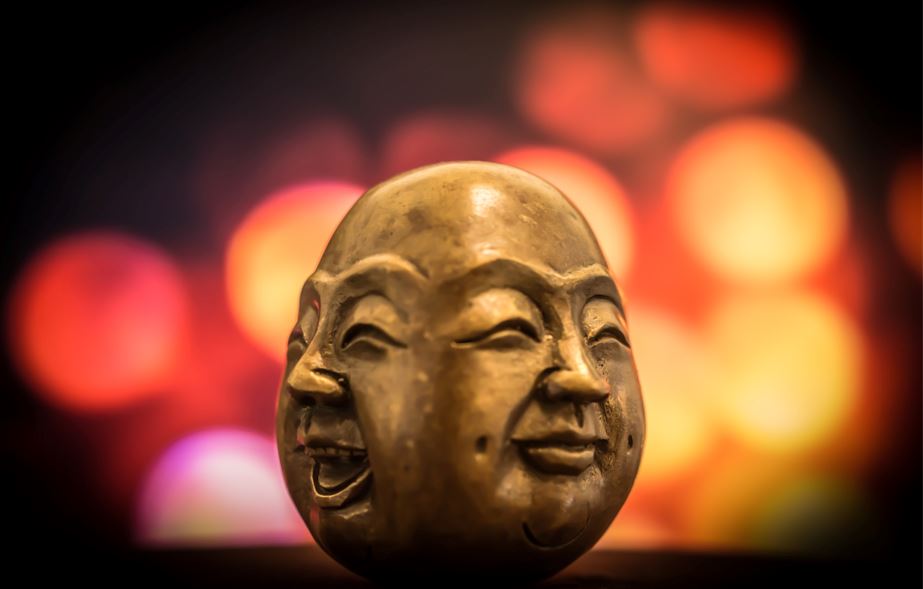Laughing at Yourself: How Far is Too Far?
For millennials, self-deprecating humour serves as a reminder that we don’t take ourselves too seriously, a quality probably imbibed from the pop culture.

Photo: Mark Daynes
Dec. 20, 2021
Often when we go about our daily lives, we engage with the things that truly help us survive, without really pausing to think about them, let alone acknowledge or savour them. We’re so consumed by our to-do lists, our meetings, our deadlines, and other what-nots-that seldom do we stop and notice the taste of the very food that fuels us, or the weather that sets the tone for our day.
Humour is also one such element in our daily survival kit, that goes uncredited. Without it the world, its myriad offerings, and surprises would seem all too dull.
But humour, like all things human, settles in each of us as uniquely as our fingerprints. Why is it that some of us learn to laugh at ourselves, and some of us don’t? How do we determine where to draw the line, if there is one?

Photo: Akshar Dave
In our ode to humour, we attempt to answer these questions for you, served of course, with a side of psychological reasoning.
Self-defeating or self-deprecating humour demonstrates our ability to take ourselves as the object of a joke, and laugh at ourselves and our mistakes; as articulated by Andeweg and colleagues. In moderate measures, this can be a rather healthy coping mechanism that is valued by those around us, in contrast to joking at the expense of someone else, states Bippus. Positive judgements from others also act as reinforcements for us to engage in this comedic technique over and over again.
“Taking a dig at ourselves is often driven by the subconscious intent to beat everyone else to the punch(line) and call out the things we’re insecure about, before they do.”
For us millennials who’ve learnt to aspire to transience and impulsivity (courtesy, perhaps, a string of 21st Century coming-of-age cinema), self-deprecating humour also serves as a reminder that we don’t take ourselves too seriously, a quality that’s gotten more than its due in pop culture.
While this mechanism is seemingly harmless, research points to some serious implications it could have on our well-being.
According to X.D. Yue, people in the habit of passing negative remarks about themselves tend to have damaged self-esteem. This can be attributed to the internal standards we set for ourselves, our disappointment for not meeting them, and our inherent tendency to minimise it to a joke, in order to shield ourselves from the possibility of someone passing a nasty judgement. If our continuous negative evaluations of ourselves are the only evaluations we’re making, they’ll be the only ones we go on to believe.
It’s a vicious cycle!
Here are two major signs that could help you identify if you’re caught in the loop too:
- If your first reaction to a compliment is to deny it and/or contradict it, then you might have some thinking to do. Repelling any regard that comes your way only to insult yourself could point to a deeper self-esteem concern.
- If the words, “I don’t deserve this,” automatically flow out of you upon being rewarded, consider this an indication of low self-efficacy and self-esteem.
- What does your self-talk sound like? Do you criticise yourself even when you’re alone? It’s time to rethink that comedy set you’ve been performing before the mirror; you owe it to your well-being.

Photo: Daniel Thomas
Here’s How You Can Break the Cycle
- Believe the Compliment
As hard as it seems, this is the first step towards actively keeping a check on yourself. Allow yourself the right to get used to applause, rewards, and praise; shed the idea that they’re luxuries; cultivate the holistic narrative that they are simply consequences of the work you’ve put in.
- Write Down Your Feelings
Not just for the sake of that solo comedy set, but for a long-term, meaningful change in your engagement with self-defeating humour, journalling can come in very handy, found Brown. Detailing the situations where you denied a compliment or talked yourself down, will enable you to develop an awareness of the stimuli that led you to criticise yourself in the first place.
While working on our self-deprecating humour isn’t the only way to ensure high and healthy self-esteem, it certainly is instrumental to the process.
It’s time we reclaim the sense in sense of humour and develop it to help us soar, not hold us back.
(Author: Samreen Chhabra works as a Senior Research Fellow at Jindal Institute of Behavioural Sciences)
